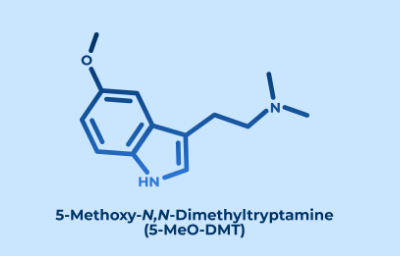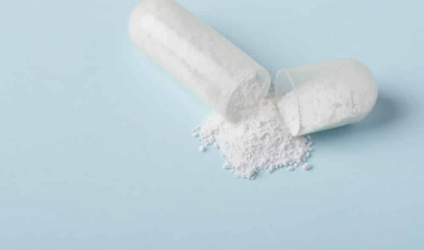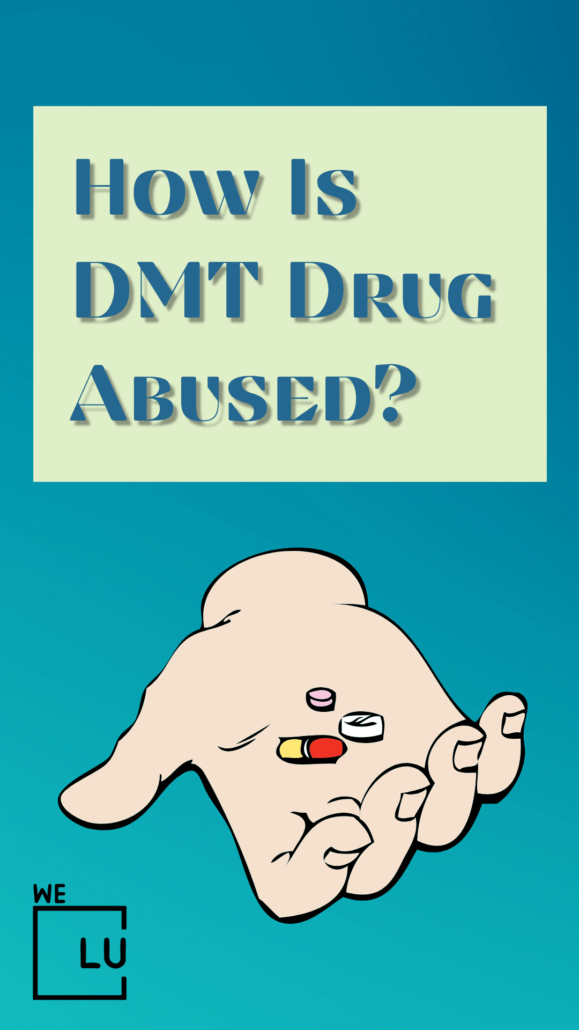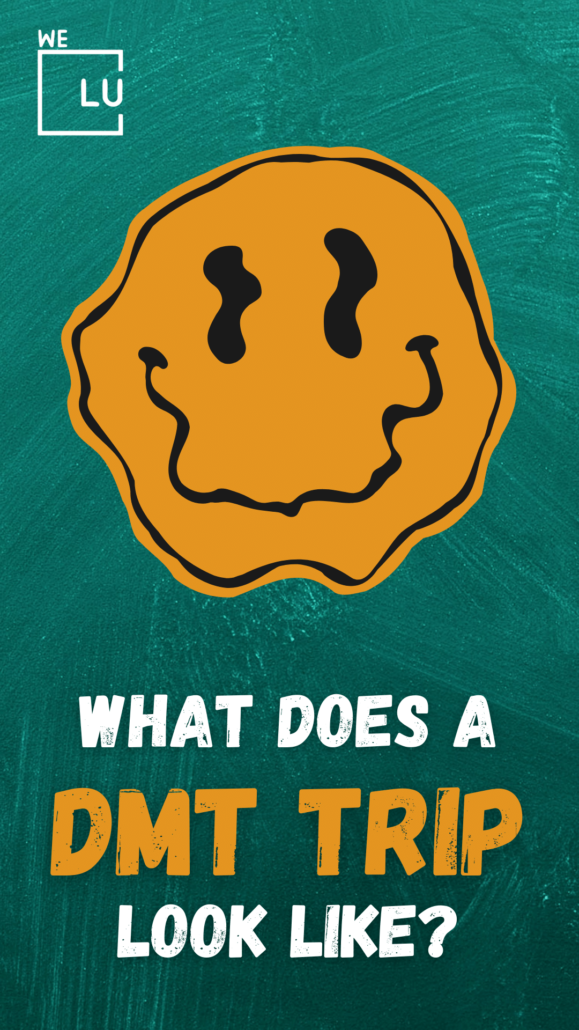How Long Does DMT Last?
DMT, a Schedule I controlled substance in the United States, is known for being a relatively fast-acting drug. But how long does DMT Last? DMT (N,N-Dimethyltryptamine) is a psychedelic compound found in some plants and, in trace amounts, in the human body. It can cause rapid, short-lived hallucinations, and may be taken orally, consumed as tea, smoked or vaped, or injected.
DMT is the primary hallucinogenic component of ayahuasca tea, which is made from the South American plant of the same name and is traditionally used for ritual purposes. DMT can also be synthetically produced and is often available as a white or yellow crystalline powder.
How long does DMT last for? It varies from person to person, but you can expect the effects of DMT to last up to 30 to 45 minutes if you smoke it, and for about 4 hours if you drink ayahuasca. Because DMT drug effects are often psychedelic and include symptoms like hallucinations and out-of-body- experiences. As a hallucinogenic drug, the side effects of DMT mimic that of psychosis, which is a severe medical condition.
How Long Does DMT Trip Last?
DMT is known for giving users a very intense ‘trip’ – the name given to the experience of taking psychedelic drugs. The world appears very distorted when you trip on DMT: colors, sounds, objects, and even time can seem very strange, and some people experience out-of-body experiences. Taking DMT can make you:
- See and hear things that aren’t there (hallucinate), which might be a good or bad experience
- Feel like time and movement are speeding up or slowing down
- Feel like colors and sounds are distorted. This is sometimes called ‘visuals
- Have double vision
- Feel like you’re having an out-of-body experience with any hallucinogenic drug, people can react unpredictably when they’re on DMT. Some DMT users have reported feeling like they’re going through a near-death experience and become very quiet and inward-looking. In addition, some individuals report not being to move while they’re on DMT.
How Long Does DMT High Last?
How long is a DMT trip? When smoked, DMT kicks in very quickly. When taken as part of an ayahuasca ceremony, it can take much longer to take effect. DMT trips are known for being extremely intense but also very short – sometimes lasting only a few minutes. When taken as part of an ayahuasca ceremony, a DMT trip can last several hours.
- How long does a DMT trip last when injected? Effects appear very rapidly, often instantly, and are gone within around 30 minutes.
- How long does DMT high last when injected in a muscle? Intramuscular injection: Effects appear within two to five minutes and disappear after approximately one hour.
- How long do DMT trips last when taken as a tea? Oral consumption through ayahuasca tea: Effects begin after around one hour, peaking within 90 minutes and lasting about four hours total.
- How long does DMT take to kick in when smoked? Smoked or vaped: Effects may appear instantly and last less than 30 minutes.
How Long Does DMT Stay in Your System?
DMT is not part of the screening process for standard drug tests used for employment, and law enforcement purposes. Detecting DMT in the blood, urine, hair, or saliva requires specific testing.
How Long Does DMT Stay in Your System? Urine Test
DMT can be detected in urine for up to 24 hours after it’s taken. This requires a specific test that’s made to find hallucinogens like DMT.
How Long Does DMT Stay in Your System? Blood Test
DMT can be detected by a blood test for only up to around two hours after it’s taken.
How Long Does DMT Stay in Your System? Saliva Test
DMT can be detected in saliva for about 1 hour after use, sometimes less. However, research also shows that it’s possible to detect DMT in saliva anywhere between 4 and 12 hours after use.
How Long Does DMT Stay in Your System? Hair Test
Drug tests on hair can usually detect the presence of drugs in the system for long periods. DMT can be detected in hair for up to 90 days. Even so, this number can vary depending on how often it’s used.

Skip To:
- How Long Does DMT Last?
- How Long Does DMT Trip Last?
- How Long Does DMT High Last?
- How Long Does DMT Stay in Your System?
- DMT Drugs Statistics
- DMT (dimethyltryptamine) Drug Fact Sheet
- How Does DMT Impact the Brain?
- DMT Overdose Symptoms
- What are the Physical Health Risks of DMT?
- What are the Mental Health Risks of DMT?
- What Influences How Long DMT Lasts?
- The Risks and Effects of DMT
- DMT Addiction Treatment
Learn More:
How Long Does DMT Stay in Breastmilk?
Almost any drug that’s present in the blood will transfer into breast milk to some extent. Most medications do so at low levels and pose no real risk to most infants. There are exceptions, though. Some drugs can be found in high levels of breast milk. As a result, every medication must be considered separately.
We have very little knowledge of the volume of psychedelic compounds that reach breastmilk, and what, if any, effects these compounds might have on developing brains and bodies. And while some animal studies have found adverse effects of using psychedelics during pregnancy, none have examined these compounds’ effects during the breastfeeding period alone.
Caution may also be warranted for pregnant people. While the research in this area is not conclusive, animal studies have shown that negative effects may be possible with ayahuasca usage.
Get Help. Get Better. Get Your Life Back.
Searching for Accredited Drug & Alcohol Rehab Centers Near You? Or Mental Health Support?
Even if you have failed previously, relapsed, or are in a difficult crisis, we stand ready to support you. Our trusted behavioral health specialists will not give up on you. Call us when you feel ready or want someone to speak to about therapy alternatives to change your life. Even if we cannot assist you, we will lead you wherever you can get support. There is no obligation. Call our hotline today.
FREE Addiction Hotline – Call 24/7DMT Drugs Statistics
According to the Substance Abuse and Mental Health Services Administration, approximately 114,000 adolescents aged 12 to 17 used hallucinogens in 2016. Furthermore, 668,000 young adults aged 18 to 25 used hallucinogens.
8.9%
lifetime and past-year prevalence of DMT use in 2012 was 8.9% and 5%, respectively
Source: NCBI
10,500
In the US, there were over 10,500 total seizures of tryptamines between 2011 and 2015
Source: NCBI
75%
Approximately 75% of the population tested positive for at least one biological specimen of drugs or alcohol. Of that 75%, more than one-third of those attendees were confirmed to contain one or more NPS or MDMA.
Source:
DMT (dimethyltryptamine) Fact Sheet
DMT (dimethyltryptamine)
The standard indolethylamine hallucinogen is N,N-Dimethyltryptamine (DMT). Since DMT use is connected to several religious ceremonies and practices, the history of human experience with it likely dates back several hundred years. DMT is a compound that occurs naturally in a variety of plant species and is found in a number of South American snuffs and brewing concoctions, including Ayahuasca.
DMT can also be created synthetically. Richard Manske, a British scientist, carried out the first synthesis in 1931. DMT became a popular substance of abuse in the 1960s, and when the Controlled Substances Act was created in 1971, it was put under federal jurisdiction under schedule I. Along with a number of other tryptamine hallucinogens, it is still available illegally today.
Licit Uses
The use of DMT by researchers is permitted under a category I research registration, which needs both DEA and Food and Drug Administration permission. DMT has no recognized medical use in the United States.
lllicit Uses
DMT is employed for its psychoactive properties. Individuals who want the psychedelic experience but do not want to experience the mind altering perceptions over an extended period, as occurs with other hallucinogens, find the intense effects and short duration of action appealing such as LSD. DMT is typically smoked or consumed orally in the form of brews such as Ayahuasca.
Pharmacology
DMT is typically snorted, smoked, or injected when administered alone because its oral bioavailability is very low unless combined with a substance that inhibits its metabolism. In ayahuasca, for example, Harmala alkaloids (harmine, harmaline, and tetrahydroharmaline) inhibits monoamine oxidase, an enzyme that metabolizes typically DMT. As a result, DMT remains intact long enough after oral administration to be detected in sufficient quantities to affect brain function and produce psychoactive effects
In clinical studies, DMT administered intravenously was fully hallucinogenic at doses ranging from 0.2 to 0.4 mg/kg. DMT effects appear quickly but usually wear off within 30 to 45 minutes. Some of the psychological effects include intense visual hallucinations, depersonalization, auditory distortions, and an altered sense of time and body image.
Hypertension and other physiological effects include agitation, seizures, dilated pupils, nystagmus (involuntary rapid rhythmic movement of the eye), dizziness, and ataxia (muscular incoordination). In addition, coma and respiratory arrest have been linked to DMT exposure, according to data from the American Association of Poison Control Centers (AAPCC).
Controllod Substance Classification
Vyvanse is classified as a Schedule II controlled substance. Schedule II drugs, substances, or chemicals are defined as drugs with a high potential for abuse.

How Does DMT Impact the Brain?
DMT is a type of hallucinogenic substance. Like other hallucinogens, DMT can alter a person’s perception. It changes how they experience stimuli in their environment. Drugs like DMT are known for inducing effects similar to those of psychosis. Hallucinations and paranoia are the most common of DMT’s side effects.
DEA reports that DMT is still on the illicit drug market. Any DMT being sold is illegal to purchase. DMT finds its way into the United States by being illegally imported or by being manufactured somewhere in the form of synthetic DMT.
DMT can cause cognitive changes, which can pose a great risk to someone under the influence of the drug and those around them. For instance, a person on DMT may feel invincible. DMT can also make a person feel like their mind is exiting their body or the things around them are not really there.
The mind-altering side effects of DMT continue with delusions, like a distorted perception of things heard and seen. The perception of time can change as well, with a person sensing time is moving far more quickly or far more slowly than it really is. In extreme cases, DMT can make the user feel that they have transformed into something else, like an animal or object.

Get Your Life Back
Find Hope & Recovery. Get Safe Comfortable Detox, Addiction Rehab & Mental Health Dual Diagnosis High-Quality Care at the We Level Up Treatment Centers Network.
Hotline (877) 378-4154DMT Overdose Symptoms
DMT overdose is very rare and involves taking an extremely high drug dose. However, a dangerous condition known as serotonin syndrome can happen when taking DMT together with other medications, like:
- Levodopa, which is used to treat Parkinson’s disease
- Lithium
- Migraine medications called triptans
- Selective serotonin reuptake inhibitors (SSRIs)
Serotonin syndrome can cause life-threatening conditions like seizures, high fever, loss of consciousness, and sudden changes in blood pressure or pulse. If you or a loved one are experiencing serotonin syndrome, seek medical help right away. How long does DMT last shelf life? A year stored in a refrigerator either in plastic or glass containers, seven days at 37 °C to reproduce usual mail transportation, and after three freeze–thaw cycles.
What are the Physical Health Risks of DMT?
Lots of indigenous peoples in South America ingest food or drinks that contain DMT as part of their culture – the best-known example is ayahuasca ceremonies.
For this reason, some individuals think DMT is spiritual and therefore safe, but it is still a chemical hallucinogen.
This means it can:
- Raise your blood pressure
- Raise your heart rate
- Be harmful to those with a pre-existing heart condition
- Cause nausea and vomiting, as a result of intoxication
What are the Mental Health Risks of DMT?
DMT can produce very unpredictable – and sometimes very frightening – side effects, which feed off an individual’s imagination.
If panic occurs, the experience can be confusing and scary.
Taking DMT can:
- Lead to flashbacks, this is when part of the trip is subsequently relived after the original experience.
- Be especially serious for someone with a history of mental health problems. It could trigger a problem for someone who didn’t know they had a predisposition to mental health problems.
- Lead to the user harming him or herself if the trip goes bad – so it’s probably best to avoid taking DMT if you’re in a bad or anxious mood.
- Lead to unpleasant and emotional effects that could last for days after taking the drug.
First-class Facilities & Amenities
World-class High-Quality Addiction & Mental Health Rehabilitation Treatment
Rehab Centers TourRenowned Addiction Centers. Serene Private Facilities. Inpatient rehab programs vary.
Addiction Helpline (877) 378-4154Proven recovery success experience, backed by a Team w/ History of:
15+
Years of Unified Experience
100s
5-Star Reviews Across Our Centers
10K
Recovery Success Stories Across Our Network
- Low Patient to Therapist Ratio
- Onsite Medical Detox Center
- Comprehensive Dual-Diagnosis Treatment
- Complimentary Family & Alumni Programs
- Coaching, Recovery & Personal Development Events
What Influences How Long DMT Lasts?
Factors like the dosage taken, weight, age, metabolism, and frequency of drug use can all affect how long DMT stays in your system. Although at-home remedies may be tempting, the safest way to get DMT out of your system is with medical detox.
There are no known ways to speed up the metabolic process and quickly get DMT out of your system. Drinking more water or eating a full meal won’t clear the drug out of your body faster. However, taking ayahuasca or another oral form of the drug on an empty stomach may speed up how quickly it takes effect.
Like most hallucinogens, DMT is probably not addictive, though the long-term effects of regular use are not yet known. Habitual users of DMT do not appear to develop a tolerance to the drug.
Taking DMT may result in a bad trip, which can cause unpleasant symptoms like extreme palpitations and anxiety. DMT may also negatively affect judgment, which may lead to dangerous choices, or harmful specially for someone who isn’t accustomed to the drug’s effects.

World-class, Accredited, 5-Star Reviewed, Effective Addiction & Mental Health Programs. Complete Behavioral Health Inpatient Rehab, Detox plus Co-occuring Disorders Therapy.
CALL (877) 378-4154End the Addiction Pain. End the Emotional Rollercoaster. Get Your Life Back. Start Drug, Alcohol & Dual Diagnosis Mental Health Treatment Now. Get Free No-obligation Guidance by Substance Abuse Specialists Who Understand Addiction & Mental Health Recovery & Know How to Help.

The Risks and Effects of DMT
DMT promotes the production of serotonin, a neurotransmitter that causes feelings of euphoria. DMT causes users to experience intense happiness, hallucinations, and new perceptions of reality which people often characterize as life changing. A DMT trip can start instantly and generally lasts less than an hour when users smoke the drug. Users who drink DMT as a brew often begin to experience hallucinations that last for 4 to 6 hours after about 30 minutes. Some users report mild lingering effects that last for several days. On the physiological level, DMT can cause adverse side effects.
The possible physical side effects of DMT include:
- Dilated pupils and rapid eye movement
- Headache
- Dizziness
- Heightened body temperature
- Increased heart rate and hypertension
- Nausea and vomiting
- Loss of muscle control
- Pain or tightness in the chest
Although many DMT users laud the supposed benefits of DMT, the drug can substantially harm a person’s mental health and physical well-being. Since DMT causes the brain to release serotonin, extreme doses of the drug may send the body into a serotonin overdose. This condition might obstruct breathing, provoke seizures, or induce a coma. DMT can cause a person extreme anguish or even death.
While some DMT users have had positive psychological experiences with the drug, others have suffered DMT trips which they describe as confusing and terrifying. The psychological effects of DMT can be traumatizing, especially for people who are living with mental illnesses like schizophrenia.
Experience Transformative Recovery at the We Level Up Treatment Center.
See our authentic success stories. Get inspired. Get the help you deserve.



Start a New Life
Begin with a free call to an addiction & behavioral health treatment advisor. Learn more about our dual-diagnosis programs. The We Level Up treatment center network delivers various recovery programs at each treatment facility. Call to learn more.
- Personalized Care
- Caring Accountable Staff
- World-class Amenities
- Licensed & Accredited
- Renowned w/ 5-Star Reviews
We’ll Call You
DMT Addiction Treatment
There is a strong link between mental health and DMT drug abuse. Individuals who struggle with mood disorders like depression and anxiety are more susceptible to developing an addiction to drugs or alcohol, often to self-medicate symptoms of their underlying mental health condition. These co-occurring disorders can make each other worse without proper treatment.
To determine the most effective ways to treat polysubstance, it’s crucial to first get an accurate assessment of all the symptoms. When the symptoms have been evaluated by a mental health professional, it may be determined that another form of mental condition is present and needs a particular type of treatment. Very often, some combination of psychotherapy, medication, and/or lifestyle changes are effective for coping with functional.
Detox Treatment in New Jersey Rehab Center
The first step in treatment is a medical detox. It will help you navigate the complicated withdrawal process, but it doesn’t address patterns of thought and behavior that contribute to drug abuse. Various treatment approaches and settings can help provide the ongoing support necessary to maintain long-term sobriety after you complete detox.
Cravings are very common during detox and can be challenging to overcome. This often leads to relapse. Constant medical care provided during inpatient treatment helps prevent relapse. Clinicians can provide the necessary medication and medical expertise to lessen cravings and the effects of withdrawals.
Psychotherapy
Several different modalities of psychotherapy have been used in the treatment of depression, including:
- Cognitive Behavioral Therapy (CBT) – is an effective treatment that involves making changes in both the patterns of negative thoughts and the behavioral routines which are affecting the daily life of the depressed person for various forms of depression.
- Dialectical Behavioral Therapy – is a comprehensive mental health and substance abuse treatment program whose ultimate goal is to aid patients in their efforts to build a life worth living. The main goal of DBT is to help a person develop what is referred to as a “clear mind.”
- Person-Centered Therapy – is a strategy that allows and encourages clients to understand and resolve their concerns in a safe, supportive environment.
Dual Diagnosis Treatment Centers New Jersey
Substance abuse and mental health disorders often co-occur. In many cases, traumatic experiences can result in a mental health disorders and substance abuse. Dual diagnosis programs in New Jersey treat both of these issues together. The best approach for the treatment of dual diagnosis is an integrated system. This strategy treats both the substance abuse problem and the mental disorder simultaneously. Regardless of which diagnosis (mental health or substance abuse problem) came first, long-term recovery will depend mainly on the treatment for both disorders done by the same team or provider.
DMT Addiction Rehab Near Me
Please, do not try to detox on your own. The detox process can be painful and difficult without medical assistance. However, getting through the detox process is crucial for continued treatment. We Level Up provide proper care with round-the-clock medical staff to assist your recovery through our opioid addiction treatment program medically. So, reclaim your life, and call us to speak with one of our treatment specialists. Our counselors know what you are going through and will answer any of your questions.
DMT addiction is a condition that can cause major health problems, such as overdosing. We Level Up NJ rehab treatment & detox center can provide you, or someone you love, the tools to recover from this with professional and safe treatment. Feel free to call us to speak with one of our counselors. We can inform you about this condition and clarify issues like withdrawal symptoms. Our specialists know what you are going through. Please know that each call is private and confidential.

How Long Does DMT Last? Video
🔮 Dive into the enigmatic world of DMT (N,N-Dimethyltryptamine), a psychedelic compound that has captivated the curious minds of many. Join us on a journey as we explore the duration of the DMT experience, its various forms, and the impact it has on both body and mind.
Search We Level Up NJ “How Long Does DMT Last?” Topics & Resources
Sources
[1] Dimethyltryptamine: Endogenous Role and Therapeutic Potential – PubMed (nih.gov)
[3] Neuropharmacology of N,N-dimethyltryptamine – PubMed (nih.gov)
[5] Human psychopharmacology of N,N-dimethyltryptamine – PubMed (nih.gov)
[6] Ayahuasca: Pharmacology, neuroscience and therapeutic potential – PubMed (nih.gov)
[8] Hallucinogens DrugFacts | National Institute on Drug Abuse (NIDA) (nih.gov)
[9] Hallucinogens – PubMed (nih.gov)
[10] Hallucinogens DrugFacts | National Institute on Drug Abuse (NIDA) (nih.gov)